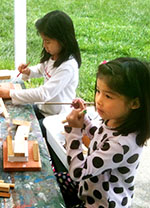Testimonials
Wendy Citron, Montessori Upper Elementary

The Gifts and Challenges program is extraordinary! Each year I find my classroom community coming together through the thought–provoking activities and lively discussions provided by the program. Individual confidence builds through self-awareness as students are asked to take an introspective look inside themselves. The intricately woven lessons set the stage for talking about many differences we face in our lives and bring students closer to help one another identify the similarities that make us all human. Hands down I consider this program to be an integral part of the classroom curriculum.
Judi Bauerlein, Teacher Trainer,
Former President American Montessori Society
What a professional, attractive, and relevant book you have created. I take your call to all of us to take the “enduring messages…about honoring our gifts and rising to challenges” as very relevant.
Thank you for this important contribution that you have made to the healthy, natural development of children (and adults!)
I will happily share your creation with teachers, with gratitude for your “gift”!
Kathy Schaefer, Montessori Upper Elementary

The children who came into my upper elementary class had been practicing their Gifts and Challenges with Judy for three years. They were well aware of the Comparison Jungle. They rejoiced in opportunities to spend uninterrupted time dedicated to celebrating their gifts and practicing their challenges.
As they entered our classroom and a new stage of development, all of this looked and felt a little different. Their sense of self had matured as they became more aware of social expectations and their own place in the social scheme. The children’s ability to articulate their feelings and thoughts had also evolved, adding richness and detail to our discussions.
My personal favorites were our Challenge days. We’d begin by discussing Challenges, reviewing how they feel and what we want to practice doing about them. Then the oldest children in the class would have an opportunity to name a challenge and ask their younger classmates if someone could help them with it. The follow-up discussions were rich with new confidence, insights about themselves and their friend, and lots of laughter.
The language of Gifts and Challenges was enormously helpful to these children as well. It gave them a non-judgmental way to describe what was happening in their work and their relationships. It was also deeply helpful to teachers when talking with their parents about their child’s progress. Everyone was reminded that learning is a lifelong continuum, and we are all works in progress. The importance of each child’s supportive words, to their friends and to themselves, is a lesson I hope each of my students will carry for the rest of their lives.
Tess Weisbarth, Fifth Grade

Most children are realistic about their strengths and what they need to work on. They also appreciate the opportunity to be asked about those strengths, as well as talk and write about them, and most importantly practice their gifts with their peers. This curriculum makes space in a big part of their world, the school environment, to be open and honest about who they are, what they have to offer, and what others have to offer them.
